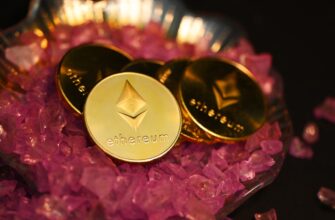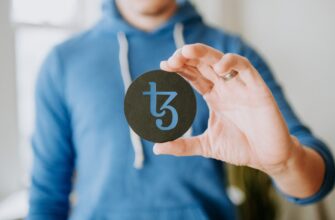## Introduction: What is Ethereum?
Ethereum is a decentralized, open-source blockchain platform that revolutionized digital technology by introducing smart contracts. Unlike Bitcoin, which primarily functions as digital money, Ethereum serves as a global “world computer” enabling developers to build decentralized applications (dApps) without intermediaries. Founded by Vitalik Buterin in 2015, Ethereum empowers innovations like DeFi, NFTs, and DAOs, making it the second-largest cryptocurrency by market cap. Its native cryptocurrency, Ether (ETH), fuels transactions and computational services on the network, creating an ecosystem where code executes trustlessly.
## How Ethereum Works: Blockchain and Smart Contracts
Ethereum operates on blockchain technology—a distributed ledger maintained by nodes worldwide. Key components include:
– **Smart Contracts**: Self-executing code that automates agreements (e.g., releasing funds when conditions are met).
– **Ethereum Virtual Machine (EVM)**: A runtime environment processing smart contracts across all nodes.
– **Consensus Mechanism**: Transitioned from energy-intensive Proof-of-Work (PoW) to eco-friendly Proof-of-Stake (PoS) in 2022 via “The Merge.” Validators now stake ETH to secure the network and earn rewards.
– **Gas Fees**: Users pay gas (in ETH) for computations, varying with network demand.
## Key Features of Ethereum
Ethereum’s design offers unique advantages:
– **Decentralization**: No single entity controls the network, reducing censorship risks.
– **Programmability**: Developers write dApps in languages like Solidity.
– **Interoperability**: Supports tokens (ERC-20) and NFTs (ERC-721), enabling cross-platform compatibility.
– **Upgradability**: Continuous improvements via community-driven proposals (EIPs).
– **Security**: Cryptographic encryption and economic incentives protect against attacks.
## Major Use Cases: Beyond Digital Currency
Ethereum enables transformative applications across industries:
– **DeFi (Decentralized Finance)**: Platforms like Uniswap offer lending, trading, and yield farming without banks.
– **NFTs (Non-Fungible Tokens)**: Unique digital assets for art, gaming, and collectibles (e.g., CryptoPunks).
– **DAOs (Decentralized Autonomous Organizations)**: Community-led entities governed by smart contracts.
– **Supply Chain**: Transparent tracking of goods via immutable records.
– **Web3**: User-owned internet services, including social media and storage.
## Challenges Facing Ethereum
Despite its strengths, Ethereum confronts hurdles:
– **Scalability**: High demand causes slow transactions and volatile gas fees. Solutions like Layer 2 rollups (e.g., Optimism) aim to alleviate this.
– **Regulatory Uncertainty**: Governments debate classifying ETH as a security, potentially impacting adoption.
– **Complexity**: Smart contract bugs can lead to exploits (e.g., the 2016 DAO hack).
– **Centralization Risks**: Staking concentration among large entities could undermine decentralization.
## The Future of Ethereum: Upgrades and Innovations
Ethereum’s roadmap focuses on scalability, security, and sustainability:
– **Dencun Upgrade (2024)**: Introduces “proto-danksharding” to reduce Layer 2 costs.
– **Sharding**: Splits the network into smaller chains to boost transaction capacity.
– **Zero-Knowledge Proofs**: Enhance privacy for transactions.
– **Long-Term Vision**: Become a scalable foundation for a global digital economy.
## Ethereum FAQ
**Q: Is Ethereum the same as Bitcoin?**
A: No. Bitcoin is primarily digital cash, while Ethereum is a programmable platform for dApps and smart contracts.
**Q: How do I buy Ethereum?**
A: Purchase ETH on exchanges like Coinbase or Binance using fiat currency or other cryptocurrencies.
**Q: Is Ethereum environmentally friendly?**
A: Yes, since transitioning to Proof-of-Stake, Ethereum uses ~99.95% less energy than before.
**Q: What are the risks of investing in Ethereum?**
A: Volatility, regulatory changes, and technological vulnerabilities can affect ETH’s value.
**Q: Can Ethereum be hacked?**
A: The core blockchain is highly secure, but smart contracts and user wallets can be exploited if poorly designed.








